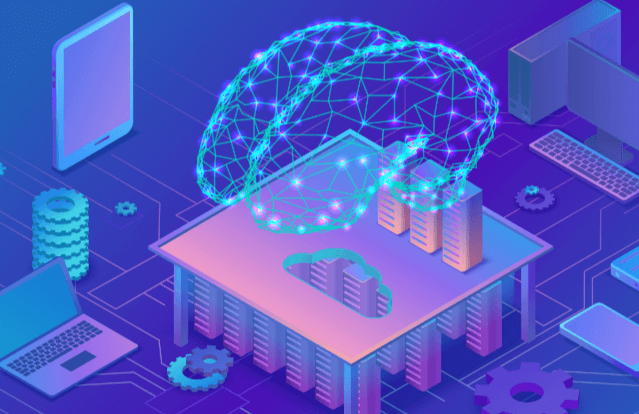Exploring the Role of Ethical AI in Shaping Tomorrow’s Technologies

As the world moves into an era dominated by artificial intelligence (AI), the importance of ethics in AI development cannot be overstated. AI systems now play pivotal roles in industries such as healthcare, finance, education, and transportation. However, with their increasing influence comes the need for a robust ethical framework to guide AI development and ensure its benefits are distributed fairly and equitably. Ethical AI is about embedding principles such as fairness, accountability, and transparency into AI systems, ensuring that they serve humanity in a responsible and beneficial manner. This article delves into the role of ethical AI in shaping tomorrow’s technologies, highlighting its significance, challenges, and the opportunities it presents.
What is Ethical AI? Defining the Concept
Ethical AI refers to the creation and deployment of artificial intelligence systems that align with societal values and ethical principles. It involves the responsible use of AI technologies, ensuring they are designed and operated in ways that avoid causing harm, respect privacy, eliminate bias, and foster transparency. As AI becomes more autonomous and integrated into decision-making processes, ethical considerations are essential to safeguard against misuse or unintended consequences.
For example, AI systems are often used in critical areas like healthcare diagnosis, loan approvals, and even criminal sentencing. If an AI system operates with inherent biases or without proper oversight, it could lead to discriminatory practices, infringing on the rights of individuals and perpetuating inequality. Therefore, the ethical dimension of AI focuses on ensuring that AI systems uphold human rights and contribute to the well-being of society.
Core Principles of Ethical AI
At the heart of ethical AI lies a set of principles that govern its design and deployment. These principles guide the development of AI technologies to ensure they are aligned with ethical standards, fostering trust and accountability.
- Fairness: AI should be free from biases that could lead to unfair outcomes. This involves ensuring that AI models are trained on diverse, representative data sets. For instance, facial recognition software trained predominantly on lighter-skinned individuals has been shown to perform poorly on darker-skinned faces, leading to discriminatory practices. Fairness ensures that AI systems treat all individuals equally, regardless of race, gender, or socioeconomic status.
- Transparency: AI systems must be transparent in their decision-making processes. Users and stakeholders should understand how AI arrives at a particular decision. This is especially critical in fields like finance or healthcare, where a lack of transparency could result in decisions that are difficult to challenge or rectify. Transparency fosters trust between AI developers, users, and the public.
- Accountability: Developers and operators of AI systems must be accountable for the outcomes of their AI technologies. In situations where AI systems cause harm or make erroneous decisions, there should be mechanisms in place to hold parties responsible and provide recourse for those affected. This principle of accountability ensures that AI is used responsibly and ethically.
- Privacy: Ethical AI must respect individual privacy, particularly given the vast amounts of data used to train AI systems. AI should not violate privacy by overreaching in its data collection or use, and individuals should have control over their personal information. In industries such as healthcare or finance, where sensitive data is handled, respecting privacy is not only an ethical obligation but often a legal requirement.
Ethical AI in Key Sectors
AI is reshaping several industries, but its potential for positive impact comes with significant ethical concerns. Let’s explore how ethical AI is being applied across different sectors and the challenges that arise.
1. Healthcare
In healthcare, AI is revolutionizing everything from diagnostics to personalized treatments. For instance, AI-powered tools can help radiologists detect anomalies in medical imaging or predict patient outcomes based on historical data. However, these applications raise significant ethical concerns. A misdiagnosis by an AI tool could have life-threatening consequences, and bias in healthcare AI systems could lead to disparities in treatment based on race or gender.
Ethical AI in healthcare ensures that these technologies are thoroughly tested for accuracy, explainable to medical professionals, and free from biases that could affect patient outcomes. Additionally, patient data must be protected to avoid privacy breaches. With healthcare being a matter of life and death, ethical standards in AI are essential for patient safety and trust.
2. Financial Services
In the financial sector, AI is used for fraud detection, credit scoring, and algorithmic trading, among other applications. However, there is a risk that biased AI models could lead to unfair practices. For example, AI-based credit scoring systems might inadvertently penalize individuals from certain racial or socioeconomic backgrounds due to biased historical data, resulting in unfair loan denials.
Ethical AI in finance calls for transparent decision-making processes that allow consumers to understand why they were approved or denied for financial products. Additionally, financial institutions must ensure that their AI systems do not propagate systemic inequalities. This requires regular auditing of AI algorithms to check for bias and ensure they comply with ethical standards.
3. Autonomous Vehicles
One of the most prominent areas of AI development is autonomous vehicles. Self-driving cars promise safer, more efficient transportation, but they also present unique ethical challenges. For instance, how should an AI driving system respond in a situation where an accident is unavoidable? Should it prioritize the safety of the passenger over pedestrians, or vice versa?
These moral dilemmas require careful consideration, and ethical AI must be designed to make such decisions in a manner that minimizes harm. Furthermore, there must be accountability for accidents involving autonomous vehicles, ensuring that manufacturers and operators take responsibility for AI-driven decisions.
4. Education
AI in education has the potential to transform learning by personalizing educational content and automating administrative tasks. However, the use of AI in this field must be carefully monitored to ensure it promotes fairness and inclusivity. For instance, AI systems that grade student work must not harbor biases that could disadvantage students from certain backgrounds.
Additionally, student data privacy is a significant concern when using AI in education. Ethical AI requires that schools and educational institutions implement strong data protection measures to safeguard students’ personal information and use AI in a way that enhances learning rather than exploiting data.
Challenges in Implementing Ethical AI
While the need for ethical AI is clear, implementing it presents several challenges. These challenges arise from both technical limitations and broader societal factors.
- Bias in Data: One of the biggest challenges in ethical AI is addressing bias in data. AI systems are only as good as the data they are trained on, and if this data is biased or incomplete, the AI system will reflect these flaws. Bias in AI can lead to discriminatory practices, especially in sensitive areas such as hiring, criminal justice, or healthcare. Addressing bias requires robust data collection practices, regular algorithm audits, and the use of diverse data sets.
- Black Box Problem: Many AI systems, particularly those using deep learning, operate as “black boxes” where their decision-making processes are difficult to explain or understand. This lack of transparency is problematic for industries where accountability and trust are essential, such as healthcare and finance. Efforts to develop explainable AI (XAI) are underway, but it remains a technical challenge.
- Regulatory Gaps: The rapid pace of AI innovation has left regulatory frameworks lagging behind. Currently, many countries lack comprehensive regulations that govern the ethical use of AI. While some regions, like the European Union, are moving towards implementing AI-specific regulations, a global standard is still needed to ensure ethical practices are followed across borders.
- Cultural Differences: Ethical norms vary across cultures and regions, complicating the creation of universal ethical standards for AI. What is considered ethical in one country might not be viewed the same way elsewhere. This challenge requires a flexible approach that allows for cultural and societal differences while maintaining core ethical principles such as fairness and accountability.
Opportunities for Advancing Ethical AI
Despite these challenges, there are numerous opportunities to advance ethical AI and ensure it becomes the foundation of future technologies.
- Collaborative Governance: Governments, industry leaders, and civil society organizations must work together to establish comprehensive regulations that govern the ethical use of AI. This could include forming international ethical AI councils, developing industry-specific guidelines, and creating laws that hold AI developers accountable for the impacts of their technologies.
- Ethics by Design: Incorporating ethical considerations into AI design from the very beginning can help mitigate many of the issues currently associated with AI. This “ethics by design” approach ensures that fairness, transparency, and accountability are built into AI systems, reducing the risk of harmful outcomes later on.
- Public Engagement: Raising awareness about the ethical implications of AI is crucial for fostering a public dialogue that shapes the future of AI development. When the public is informed about the potential risks and benefits of AI, they can advocate for more responsible and ethical AI practices, holding companies and governments accountable.
- Ethical AI Education: As AI becomes more prevalent, educating the next generation of AI developers about ethical principles will be critical. AI ethics should be a core component of computer science and engineering curricula, ensuring that future AI professionals are equipped to build technologies that align with societal values.
The Future of Ethical AI
The future of AI depends on our ability to develop and implement ethical frameworks that guide its use. As AI technologies continue to evolve, they will play an even more significant role in shaping the fabric of society. From autonomous vehicles to healthcare diagnostics, AI’s influence will grow, and with it, the need for ethical oversight.
By committing to fairness, transparency, accountability, and privacy, we can ensure that AI serves as a tool for good, amplifying human potential and improving lives. However, this requires concerted efforts from developers, policymakers, and the public to ensure that ethical AI remains a priority.
Conclusion
Ethical AI is not just a technical issue—it is a societal imperative. As AI becomes integrated into every aspect of modern life, it is crucial that we embed ethical principles into its design and operation. The technologies of tomorrow will be shaped by the decisions we make today about how AI is used and governed. Ethical AI ensures that these technologies benefit everyone, fostering a future that is not only technologically advanced but also just, equitable, and inclusive.





